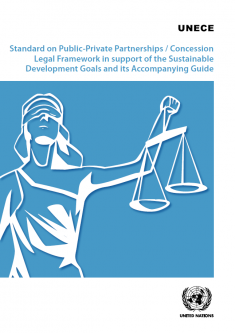When properly structured and implemented, Public-Private Partnerships (PPPs) can fulfil a range of valuable purposes and objectives for the benefit of society and the common good. They can advance the efficient and cost-effective development, provision and operation of public infrastructure and public services, by harnessing the skills, resources, know-how and/or finance of the private sector most effectively and sustainably on a long-term basis, and structuring projects in ways that allocate the risks and responsibilities involved most appropriately over their life. This can strengthen the efficacy of project delivery (whether of design, construction, rehabilitation, operation and/or maintenance), stimulate new funding and investment opportunities, help bridge the public infrastructure and service gap, raise the quality of public services, improve the public’s access to those services, and so help to achieve wider economic, environmental and social goals. It can enable projects to go ahead when they otherwise might not, advancing job creation and skills transfer. Ultimately, this can help to foster economic growth and social development in ways that promote the United Nations Sustainable Development Goals (SDGs), leading to a better and more sustainable future for all.
The purpose of this Standard is to establish the legal framework for “PPPs for the SDGs” and the contracts that give effect to them in countries, including the rules and procedures governing their selection, preparation, appraisal, procurement and implementation, the contractual principles and institutional arrangements applicable to them, and assist in the orderly and coordinated delivery of PPPs. This Standard applies to PPPs, with particular emphasis on those with a “PPPs for the SDGs” basis, but not to other types of commercial or contractual interface between public and private sectors.
The Accompanying Guide is a supporting commentary of the Standard and provides additional elucidation of the text of the Standard, written in non-legal language, but does not attempt to address or re-state every provision.
Download Publication in different languages: English / French / Russian
